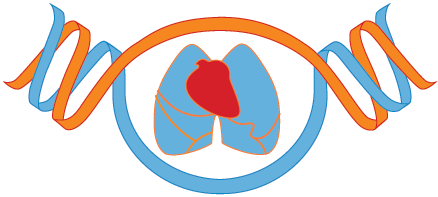- Get Started
- Centers
- Administrative Coordinating Center (ACC)
- Informatics Research Center (IRC)
- NIH
- Omics Centers
- Baylor Human Genome Sequencing Center
- Baylor-UTHealth Metabolomics Center
- Broad Institute Genomics Platform
- Broad Institute Metabolomics Platform
- Broad Institute and Beth Israel Proteomics Platform
- Illumina
- Keck MGC
- New York Genome Center Genomics
- Northwest Genomics Center
- New York Genome Center RNA-seq
- Psomagen
- Projects/Studies
- Working Groups
- Data
- Publications
- EEP
- ELSI
- Workshops
TMF: Pathway-specific polygenic risk scores for TOPMed cohorts
Principal Investigator: Mathew Goodman, PhD
Project Title: Pathway-specific polygenic risk scores for TOPMed cohorts
Abstract: Recent methodological advancements in polygenic risk scores (PRS), including the advent of large-scale GWAS and improved algorithms allowing the inclusion millions of genetic markers, have improved their discriminatory power and clinical utility. However, the proportion of phenotypic variance explained by PRS remains low. Additionally, it has recently been shown that PRS can be less predictive or biased in target populations with similar genetic ancestry but differing environmental exposures (e.g. smoking, SES) compared with the training group. This and related evidence suggests gene-environment (GxE) interaction plays an important role in the polygenic architecture of complex traits, and in predicting total genetic effect on phenotypes of interest. Unfortunately, GxE analyses at the individual variant level tend to be underpowered, while PRS-level GxE analyses do not allow flexibility for differential effect modification in different regulatory modules, potentially explaining recent null results. Aggregating effects to the gene or pathway level may result in an optimal level from which to detect GxE aligned to biological units, both limiting multiple testing and allowing flexibility for differential effect modification in different genetic modules. Adopting this approach would facilitate two goals: 1) to probe specific genes/pathways for effects on an outcome of interest in subpopulations experiencing differential environments, thus improving our understanding of disease heterogeneity, and 2) to improve modeling of genetic architecture to better reflect biological knowledge, improving PRS prediction across environments. Hence, new gene- and pathway-specific genetic risk score approaches are needed to leverage large-scale GWAS data, as well as accruing knowledge of regulatory function and pathway structure, to enhance existing PRS and GxE methods.
Our interest in GxE focuses on the role of sleep-related exposures as a modifying environment for preexisting genetic risk. For example, both short and long sleep have been associated with hypertension and are environmental exposures that may disrupt regulatory pathways and modify genetic risk. Our group recently conducted a genomewide interaction study (GWIS) of 122,265 individuals, focusing on sleep duration as an environmental modifier of the genetic regulation of blood pressure. This effort identified 26 novel and 18 known BP loci with significant GxE effect modification by short sleep or long sleep. However, we suspect that additional GxE effects may be detected in pathway-level analyses, given improved power. As an example of the promise of PRS in GxE, in an investigation now accepted for publication in Circulation Genomics [6], I examined four pathways of a priori interest related to overnight intermittent hypoxia, using a novel pathway specific PRS methodology leveraging recent linkagedisequilibrium (LD)-aware PRS algorithms and advanced functional genomics for SNP-gene assignment, finding qualitative risk-inverting genetic effect modification specific to the VEGF regulatory pathway among participants with sleep apnea in the UK Biobank.
Here we propose to further develop our pathway-specific polygenic risk score (PS-PRS) methodology in the study of several closely related blood pressure (BP) phenotypes: hypertension (HT), systolic and diastolic blood pressure (SBP, DBP), mean arterial pressure (MAP), and pulse pressure (PP). We will first study how to most efficiently compute PS-PRS for multiple phenotypes and thousands of pathways across all individuals in TOPMed with sequence data. We will then investigate BP PS-PRS associations, as well as effect modification of BP genetics by sleep duration, an emerging risk factor for cardiovascular disease, reflected in the new Life’s Essential 8 guidelines from the American Heart Association. Analyses will be conducted across a comprehensive set of 1330 MSigDB core regulatory pathways, as well as a secondary analysis of constituent genes (single genes being a special case of pathways). We hypothesize that PS-PRS for relevant molecular pathways will be robustly associated with the target BP traits, and that GxE analyses will confirm prior results while revealing novel genetic effect modification due to sleep duration, localizing to specific pathways and genes. Identifying genes and pathways impacting blood pressure, yet modified in long and short sleep, can provide biological insights into both disorders, while dissecting BP heterogeneity and potentially revealing targets for intervention. Implementation of these methods within the BioData-Catalyst platform will facilitate future large-scale PS-PRS analyses via a software pipeline enabling PS1 PRS computation for arbitrary traits and pathways, supporting multiple research applications for the TOPMed community.
PI:
Matthew Goodman
Award Type:
TOPMed Fellowship
Start Year:
2022

